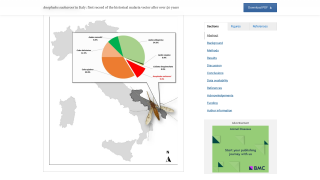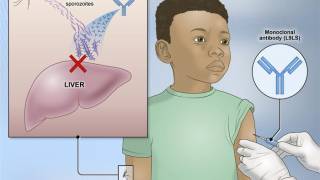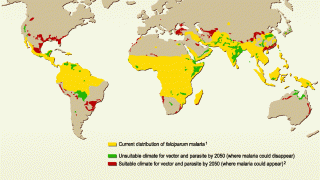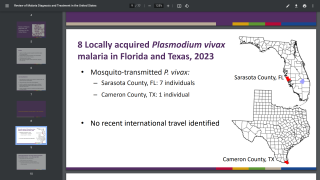Oral Malaria Tablets Now Available in the USA

The distribution of Arakoda™ (tafenoquine) into the US marketplace was announced by 60 Degrees Pharmaceuticals (60P) in a press release.
60P's initial significant shipment of Arakoda occurred during September 2019 to the U.S. Army.
This is important news since malaria is one of the most severe public health problems worldwide.
According to 60P, Arakoda has the potential to protect thousands of international travelers and military personnel from the devastating and life-threatening effects of malaria.
This milestone complements the regulatory approval of Arakoda™ by the US Food and Drug Administration (FDA) in July 2018. Arakoda is the 1st anti-malarial medication approved in over 18 years for the prevention of malaria in adults.
The approval was based on a concerted effort by the U.S. Army and 60P, involving over 25 clinical trials and over 3,000 trial subjects, to develop tafenoquine as a weekly prophylactic drug for the prevention of malaria.
A phase 2 study published in January 2019 reported a ‘single-dose tafenoquine resulted in a significantly lower risk of P. vivax recurrence than placebo in patients with phenotypically normal G6PD activity.’
ARAKODA is supplied in 100 mg tablets for oral use only. After an initial loading dose prior to traveling, ARAKODA is intended to be taken once a week, said the company.
"Malaria is one of the most malicious diseases, on the rise in both USA and other parts of the world," said Geoffrey Dow, chief executive officer of 60P Pharmaceuticals, in a press release.
Malaria remains responsible for nearly 450,000 deaths annually, with most being young children in sub-Saharan Africa, according to the Centers for Disease Control and Prevention (CDC).
Africa is the most affected continent due to a combination of factors, such as:
- A very efficient mosquito (Anopheles gambiae complex) is responsible for high malaria transmission.
- The predominant parasite species is Plasmodium falciparum, which is the species that is most likely to cause severe malaria and death.
In areas with reduced malaria transmission, such as Latin America and Asia, residents are less frequently infected.
About 1,700 cases of malaria are diagnosed in the USA annually, and most of these cases are in returning international travelers.
The CDC publishes various malaria travel alerts each year since millions of US residents travel to countries where malaria is present.
Prevention of malaria involves a balance between ensuring that all people who will be at risk of infection use the appropriate prevention measures while preventing adverse effects of those interventions among people using them unnecessarily.
An individual risk assessment should be conducted for every traveler, taking into account not only the destination country, but also the detailed itinerary, including specific cities, types of accommodation, season, and style of travel.
In addition, conditions such as pregnancy or the presence of antimalarial drug resistance at the destination may modify the risk assessment.
A travel medicine specialist can be an excellent source of guidance when making these decisions.
Depending on the level of risk, it may be appropriate to recommend no specific interventions, mosquito avoidance measures only, or mosquito avoidance measures plus chemoprophylaxis says the CDC.
Malaria infection in pregnant women can be more severe than in nonpregnant women. Malaria can increase the risk of adverse pregnancy outcomes, including prematurity, abortion, and stillbirth.
For these reasons and because no chemoprophylactic regimen is completely effective, women who are pregnant or likely to become pregnant should be advised to avoid travel to areas with malaria transmission if possible.
If travel to a malarious area cannot be deferred, the use of an effective chemoprophylaxis regimen is essential. Depending on the destination, this is usually either chloroquine or mefloquine.
For the risk-averse traveler, remember that even in low-risk situations, it only takes 1 bite from an infective female Anopheles mosquito to transmit malaria, says the CDC.
Malaria news published by Vax-Before-Travel
Our Trust Standards: Medical Advisory Committee
- Arakoda™ (Tafenoquine) Tablets, First Prescription Drug Approved for Malaria Prevention by US FDA in Over 18 Years Now Available
- US FDA Advisory Committee votes in favor of Tafenoquine for the prevention of malaria
- Single-Dose Tafenoquine to Prevent Relapse of Plasmodium vivax Malaria
- Tafenoquine — A Radical Improvement?
- Ph 2B/3 Tafenoquine (TFQ) Study in Prevention of Vivax Relapse
- CDC: Malaria's Impact Worldwide
























